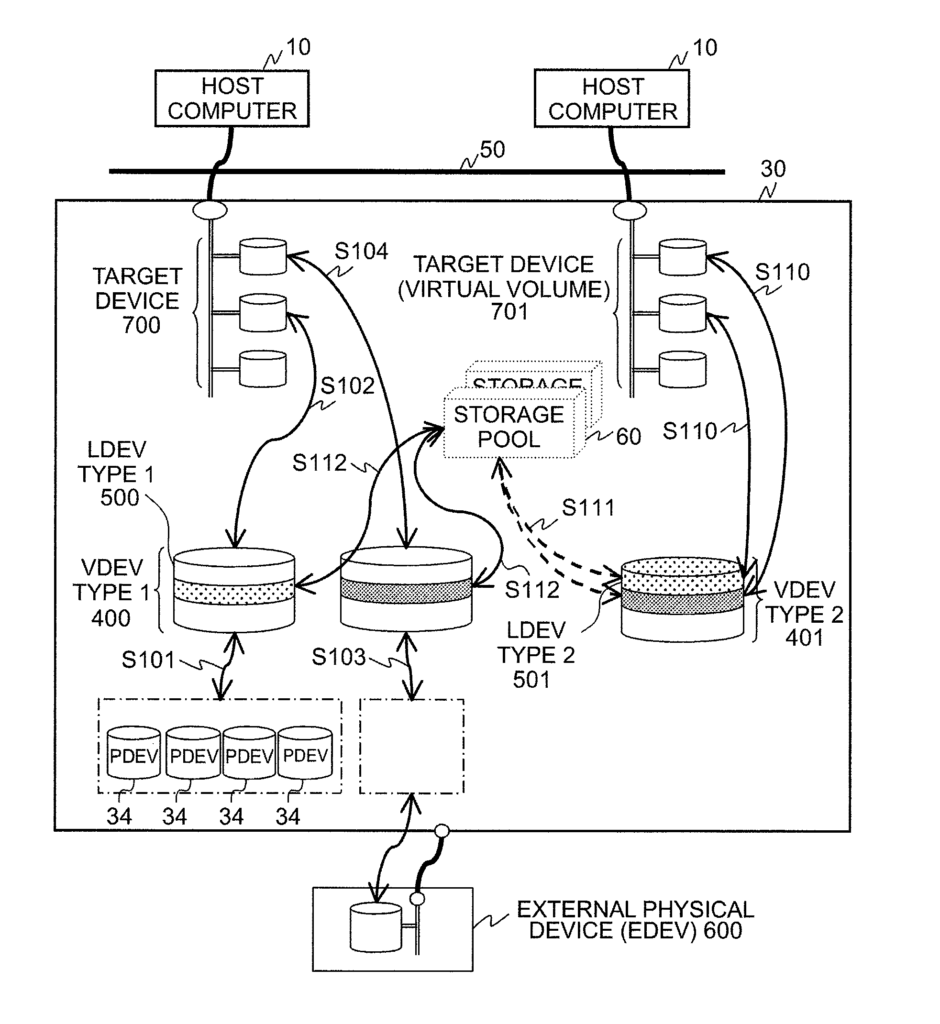Smart Storage Allocation for Peak Performance
Introduction
Imagine a system that intelligently manages storage allocation, adjusting on the fly to ensure each virtual volume receives the precise resources it needs. This advanced computing system uses a sophisticated controller to handle storage area allocation within a logical volume pool, seamlessly providing each virtual volume with the necessary capacity. Designed to meet the demands of data-intensive industries, this technology offers a flexible, resource-efficient solution to storage allocation challenges.
The Challenge: Inefficient and Static Storage Allocation
As businesses grow, data requirements surge, and traditional methods for storage allocation can quickly become outdated, leading to inefficient resource use and increased operational costs. Conventional systems lack the adaptability to handle diverse data patterns, causing either over-allocation of resources or lack of storage for critical operations. Companies face the burden of high infrastructure costs and limited flexibility, which restricts their ability to scale and manage resources efficiently.
Dynamic Storage Control that Adapts to Your Needs
This system’s intelligent controller actively manages storage allocation by tracking data requirements within virtual volumes and adjusting resources accordingly. The controller seamlessly allocates storage from the logical pool, offering flexible control over storage areas to meet real-time data needs. Whether handling high-volume transaction data or specialized, low-frequency files, the system adapts its storage allocation to optimize performance and reduce waste. This functionality not only maximizes efficiency but also enhances data accessibility and operational reliability.
Key Advantages for High-Performance Industries
For cloud computing and data management providers, this system streamlines data operations by minimizing unused storage and reducing unnecessary infrastructure costs. IT infrastructure teams benefit from a highly adaptable solution that strengthens system performance and ensures that resources are directed where they are most needed. Enterprise technology users across finance, healthcare, and technology industries will find this system invaluable for managing growing data loads with flexibility, reducing the need for constant manual adjustments.
License to Lead in Storage Efficiency
Licensing this intelligent storage allocation system empowers your organization to manage data with adaptability and precision. By implementing a solution that dynamically adjusts resources to fit real-time needs, your company gains a competitive edge in efficient storage management, maximizing both performance and cost-effectiveness. This technology is an essential tool for industries committed to high-speed, flexible data management, meeting today’s complex storage demands with an intelligent and forward-thinking approach.

- Abstract
- Claims
What is claimed is:
1. A computer system, comprising:
2. The computer system according to claim 1,
3. The computer system according to claim 2,
4. The computer system according to claim 3,
5. The computer system according to claim 1,
6. The computer system according to claim 1,
7. The computer system according to claim 1,
8. The computer system according to claim 7,
9. The computer system according to claim 1,
10. The computer system according to claim 1,
11. The computer system according to claim 10,
12. The computer system according to claim 1,
13. The computer system according to claim 1,
Share
Title
Computing system having a controller for controlling allocation of a storage area of a logical volume in a pool to a virtual volume and controlling methods for the same
Inventor(s)
Ai Satoyama, Yoshiaki Eguchi
Assignee(s)
Hitachi Ltd
Patent #
8516215
Patent Date
August 20, 2013
